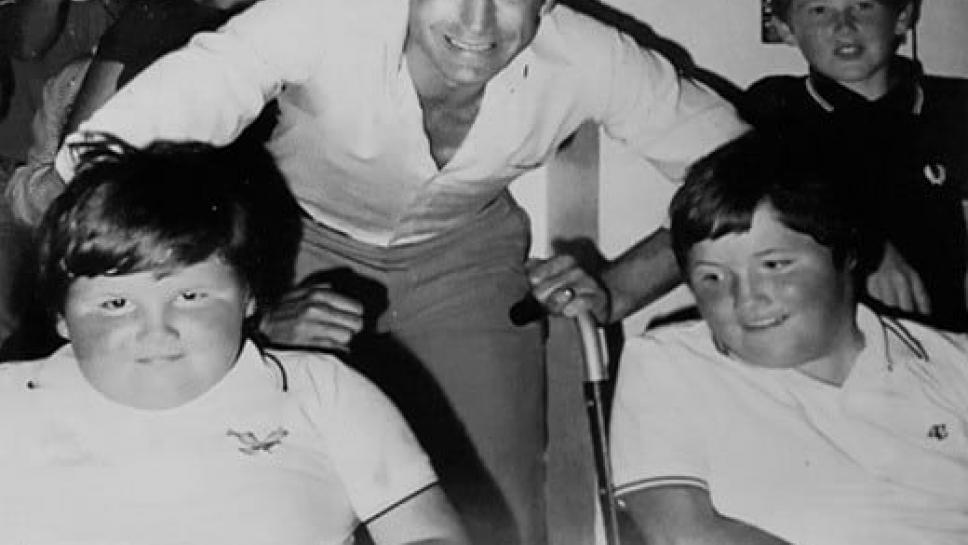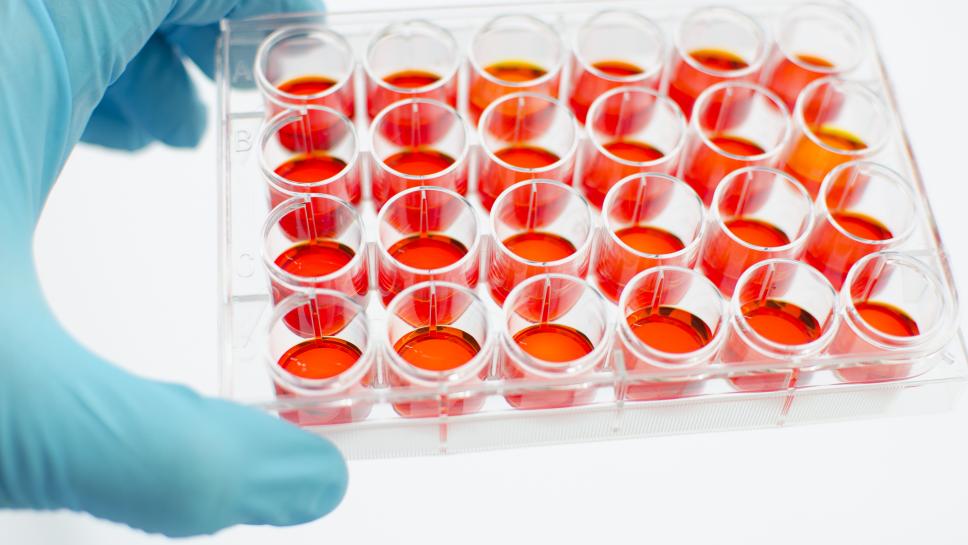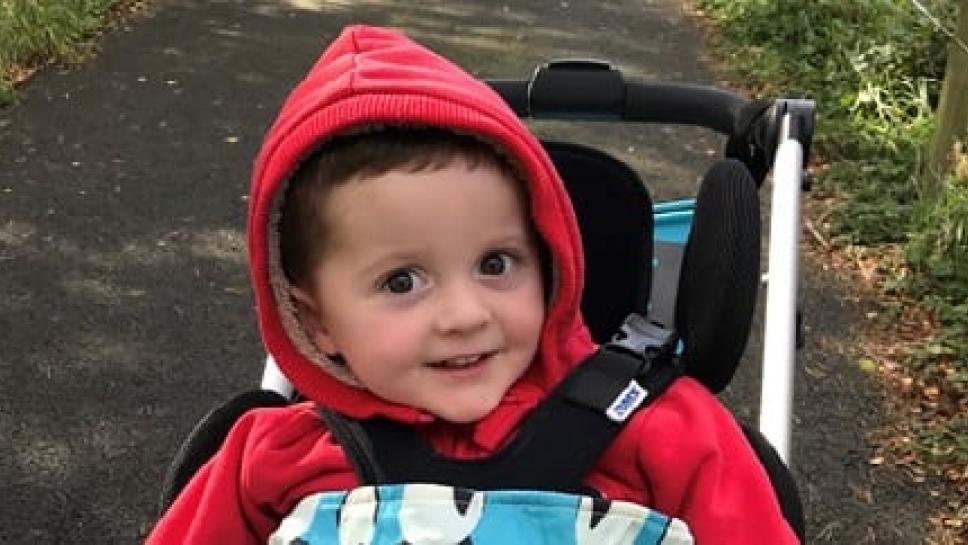Changing Places Consortium comment on Cornish boy suing theme park over lack of facilities
More than a quarter of a million severely disabled people UK-wide need access to Changing Places toilets. There are over 1100 Changing Places facilities in the UK.
Current building standards recommend that Changing Places toilets be provided in large buildings, such as large train stations, motorway services and museums. Muscular Dystrophy UK, which co-chairs the Changing Places Consortium, want to see the law strengthened so that it is mandatory for all new buildings – such as theme parks – to feature them.
Target MD - Issue 2 - 2018
Statement: Response to Govia Thameslink Railway's policy telling staff not to help disabled people if it will delay trains
According to a story in today’s Metro, Govia Thameslink Railway (GTR) has told staff not to help disabled people on to trains if it might delay the service. Muscular Dystrophy UK has responded to the report, and is now urging Govia Thameslink Railway to work with our Trailblazers to prioritise accessibility for disabled passengers.
Govia Thameslink Railway denying assistance to disabled people to avoid delays is nothing short of discrimination.
Meet #TeamOrange- Nicky Hill

Nicky Hill was one of 114 incredible #TeamOrange runners who took on the sweltering temperatures to complete the 2018 Virgin Money London Marathon for Muscular Dystrophy UK. She tells us why she was running and raising money to help the fight against muscle-wasting conditions.
“30 years ago I lost my two brothers, Gary and Matthew to Duchenne Muscular Dystrophy. In September 2017, my eldest daughter announced she was 3-months pregnant. Because I am a carrier of the disease I mistakenly believed a test carried out 23 years ago on my baby girls showed they were not carriers. To my horror I found this was not the case. Jubilation quickly turned to dread. Over the next three months tests carried out on my daughter eventually came back negative. I’m now a proud grandmother of a healthy grandson, the first boy in three generations. These experiences galvanised me to run in the 2018 London Marathon and raise money for Muscular Dystrophy UK.” Nicky braved the warmest London Marathon on record to finish in 5 hours and 42 minutes, which was a great achievement!
Along with training for the Marathon. Nicky has been doing a variety of fundraising events to help her raise as much money as possible, including setting up the ‘Billericay Big Prize Raffle Draw’. “As part of my fundraising and with the support of many local businesses I have organised the Billericay Prize Draw. I hope to sell 1000 raffle books and raise £5000.” A book of 5 raffle tickets cost just £5 and they are a wide array of fantastic prizes to be won! The draw for the raffle will take place on Saturday 19 May. To find out more about the raffle or to purchase raffle tickets please head to http://www.naturesflowers.co.uk
Mini-muscles could facilitate drug development

Researchers at University College London (UCL) have developed artificial ‘mini-muscles’ that could speed up testing potential treatments for muscle-wasting conditions.
Dr Francesco Saverio Tedesco and his team took skin cells from people with Duchenne, limb girdle and congenital muscular dystrophies and turned them into induced pluripotent stem cells (iPSCs) in the laboratory. These were then grown into tiny muscles with their own nerves and blood vessels, much like a real muscle.
The mini-muscles showed some distinctive features of muscle-wasting conditions, which supports their use as a model for drug screening. They could also be used for more basic science studies to understand more about muscle-wasting conditions.
Dr Tedesco said in a press release:
Our findings are expected to facilitate development of therapies for incurable forms of muscular dystrophy by providing a novel way to test treatments in a personalised fashion and on multiple cell types at the same time. They could also help in developing artificial muscles for tissue replacement.
The study was published in the scientific journal, Cell Reports.
MDUK’s Duchenne Research Breakthrough Fund is supporting Dr Tedesco to build on this exciting work. He is currently developing a reporting system for the mini-muscles, which will allow us to measure the response to treatment.
Further information
Read about Dr Tedesco's MDUK-funded mini-muscle project
Email our Research team at research@musculardystrophyuk.org
Read the latest research news
Life-changing treatment recommended for use on the NHS in Scotland for patients with severest form of genetic condition
Spinraza is the first and only treatment for patients with the rare inherited muscle-wasting condition spinal muscular atrophy (SMA), and today (Monday 7 May), the Scottish Medicines Consortium (SMC) recommended that it should be made available on the NHS in Scotland for children with Type 1 SMA. However, it did not approve the treatment for patients with Type 2 and 3 of the condition.
Family Fund Mums Abseil the Owen Building

Mums from three Muscular Dystrophy UK Family Funds are among a group of people taking on the 160ft abseil down Sheffield Hallam University’s Owen Building.
Laura (Together for Rhys), Jemma (Olly’s Fund), and Alexandra (Euan’s Gift) all have sons with Duchenne muscular dystrophy, and raise money for the Duchenne Research Breakthrough Fund and for specialist neuromuscular care advisors.
Jemma, from Doncaster, says;"I am doing the Owen Building abseil for my son Olly who is 5 years old. I want to raise awareness of Duchenne Muscular Dystrophy and raise funds for Olly's future and for research to hopefully one day find a cure!
I do not know if I am scared of heights or not but I will certainly find out on the day when I'm stood at the top of the building waiting to step over! However, nothing will stop me, I am doing this for my son and that's enough for me”.
Alex, from Leeds, says; “Euan is my 9 year old middle son who despite having DMD has an incredible zest for life. Euan would love to abseil but due to how weak his muscles are he can’t so I’m doing in for him. By doing the abseil I will also be raising awareness of the horrible condition that is DMD and funds for MDUK who work tirelessly to support families like ours”.
The Mums join 20 other brave fundraisers taking part in the challenge on Sunday 13 May.
Breaking news: access to Spinraza in Scotland

Today, the Scottish Medicines Consortium (SMC) has announced that is has approved the spinal muscular atrophy (SMA) treatment Spinraza for use by children in Scotland with symptomatic SMA Type 1. This is the first treatment for SMA to receive approval for use on the NHS.
What does this mean?
We welcome the news that Spinraza will be available to all patients with SMA Type 1. Spinraza is the first and only treatment for patients with the rare inherited muscle-wasting condition SMA. Without access to the drug, life expectancy for those with SMA Type 1 is rarely longer than two years. However, Spinraza has been shown to improve muscle strength enabling children to crawl, and even walk.
Amy Cameron, 30, from Alloa, Clackmannanshire, Scotland, whose two year old son, Zac (pictured), has SMA Type 1 and has been receiving Spinraza through a temporary special compassionate access scheme, said:
Spinraza gives children with SMA the chance to reach amazing milestones that were never before possible. We are delighted that children like Zac will have access to this life-changing treatment, which has made such a difference to our lives. Since receiving Spinraza, Zac can swing his legs out when we hold him on our knee, and can also hold his head up when I pick him up. He’s never done this before – it’s a complete miracle. The effect Spinraza has on families cannot be underestimated, and it should be available to all who need it.
Robert Meadowcroft, Chief Executive at Muscular Dystrophy UK, said:
Spinraza brings hope to many families and we welcome the news that it will be made available by NHS Scotland to children with SMA Type 1. But we won’t rest until all patients with SMA have access to this treatment. It is now vital that robust data is provided by Biogen to support the argument for access for all people with SMA, as we turn our focus to encouraging the SMC to reassess the drug for other types.
SMA is a devastating and cruel condition, and while it is not a cure, Spinraza can buy many families more time. No parent should have to see their child gradually lose the ability to move, breathe and swallow, particularly while there is a treatment out there which could help.
What about others Types of SMA?
Spinraza also holds promise for people with other Types of SMA and we know that people with other forms of the condition will be understandably disappointed by the SMC’s decision to restrict the treatment’s availability. We share this disappointment. Throughout the SMC appraisal process we made a point, alongside SMA Support UK and SMA Trust, of arguing that all individuals with SMA should have the choice to access the treatment. This was reflected in our patient group submissions, our input at the Patient and Clinician Engagement (PACE) meeting and during the SMC Committee meeting in April.
Dr Sheonad Macfarlane, Muscular Dystrophy UK’s Scottish Council chair, shared her family’s experience of living with SMA at the SMC’s PACE meeting earlier this year. Her nine-year-old daughter, Eilidh, has SMA Type 2. She said:
I understand the decision that has been made, and it is wonderful news for families of children with SMA Type 1; however, many others with the condition will miss out, and naturally this is a huge disappointment. It doesn’t end here, though, and we will keep fighting until all patients with SMA have access to this life-changing treatment.
What happens next?
We would like to thank all the individuals and families who fed into our submission to the SMC. During the process the SMC made regular reference to how influential the personal testimonials were.
We will continue to work with the other SMA charities to ensure that Scottish Government, SMC and NHS Scotland policy does not delay access to emerging treatments for muscular dystrophy and other rare diseases. We know that SMA has been designated an ultra-rare disease which would mean it would be considered differently under the new appraisal processes recommended by the Montgomery Review on Access to New Medicines published in December 2016. These recommendations are due to be implemented in spring 2018. Once implemented, we would urge Spinraza be reassessed for Types 2 and 3 under the new appraisal process as soon as possible.
How you can get involved
- Write to your MSP asking them to contact the Cabinet Secretary for Health and Sport pushing for Spinraza to be reassessed for all Types of SMA.
- Come to our MSP drop-in event around access to treatments in Scotland. You can also ask to meet your MSP at the event or for them to attend on your behalf.
Process in England
The National Institute for Health and Care Excellence (NICE) is in the process of assessing if Spinraza should be made available for NHS use in England. It will look at the drug’s clinical- and cost-effectiveness before publishing its recommendations. We would expect guidance produced by NICE to be followed in Wales and Northern Ireland. We will continue to work with other SMA charities to make sure that patients’ voices are kept at the heart of the process.
For more information
We know the announcement will be difficult for many families in Scotland. We’d like to remind you that we are here to support you. Please call us on our freephone helpline – 0800 652 6352 – or alternatively you can call Samaritans on freephone 116123, if you would like to talk.
For more information about the approval process for Spinraza contact our Campaigns Team campaigns@musculardystrophyuk.org
